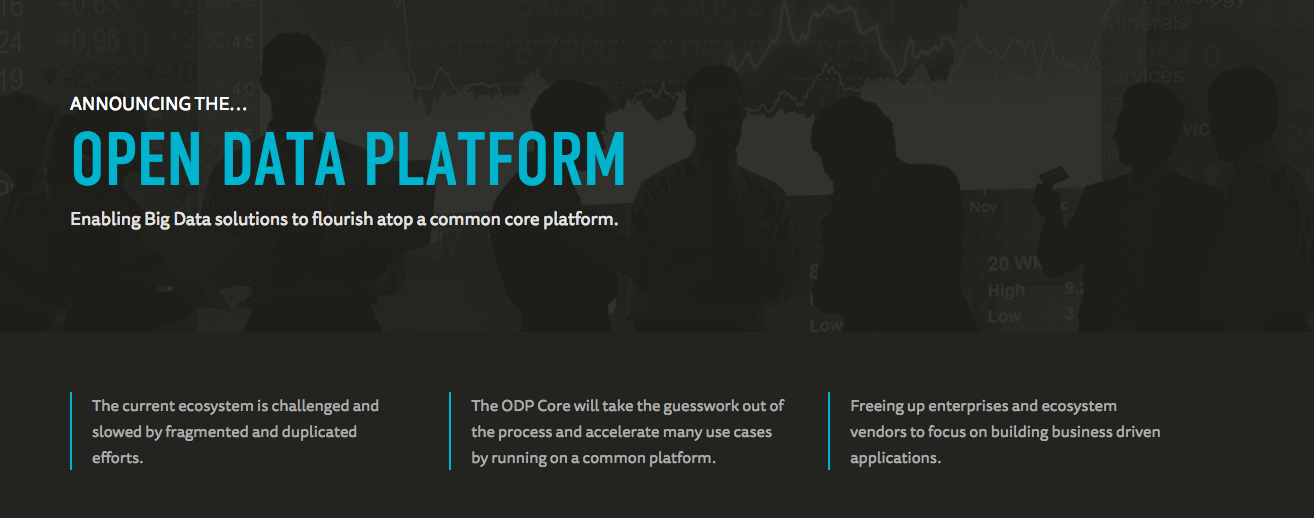
Hadoop distribution provider MapR announced it has declined its invitation to participate in the Open Data Platform (ODP).
In a blog post MapR laid out its main criticisms of ODP, including calling it redundant with Apache Software Foundation governance, purporting that its core standard is poorly defined and “vendor-biased,” and that the platform is “solving problems that don’t need solving” while “benefitting Hortonworks marketing and providing a graceful market exit for Greenplum Pivotal.”
Ted Dunning, chief application architect at MapR and vice president of the Apache Incubator, said he sees the ODP as redundant to what Apache is already succeeding at, and that the initiative is adding more standardization and artificial governance atop Big Data distributions.
“Some people seem to be talking as if ODP were a replacement for Apache in the Hadoop community,” he said. “As a strong supporter of Apache, I find that bizarre. Apache is doing a pretty fine job here in fostering this community that’s producing some pretty remarkable results, both technological and in terms of building a marketplace. I, personally, and we, corporately, just don’t see the point.”
Unveiled back in February by a coalition of Big Data companies, including Hortonworks and Pivotal, the ODP stated its focus is on promoting and advancing Apache Hadoop and Big Data technologies by providing a well-defined core platform to define, test and certify a standard “ODP Core.”
In contrast to MapR’s claims of the ODP’s redundancy and overlap with the ASF, Hortonworks sees the two as very different. As explained in a blog post, Hortonworks, Pivotal and the other ODP members view the ASF as providing “upstream innovation” with a regular cycle of major and minor releases of individual projects. In their view, the ODP complements the ASF with “downstream innovation” for aligning enterprise requirements of multiple Big Data projects.
The initiative recently announced the aligning of Hadoop-based products under the ODP Core of Apache Hadoop 2.6, including HDFS, YARN and MapReduce, along with Apache Ambari software.
“ODP is focused on simplifying adoption of Apache Hadoop for the enterprise, and accelerating the development of Big Data solutions through improved ecosystem interoperability,” a Hortonworks spokeswoman told SD Times in response to the MapR blog post. “At Hortonworks, our goal has always been to enable the Hadoop market to grow as fast as possible. We remain the biggest contributor to Apache Hadoop and invite other vendors who are also committed to open-source development to join the ODP collaboration.”
MapR’s criticisms of the initiative question whether the ODP Core excludes other Hadoop resource managers and frameworks such as Apache Spark and Mesos, and calls into question the ODP’s voting and governance structure as well as the motivations of the companies behind the initiative. Dunning said the companies’ logic—i.e. the upstream and downstream innovation—behind the ODP has been used to justify attempts to “build a consortium that controls the marketplace.”
“What rationale can they make up that kind of sounds like it makes sense?” Dunning said. “But it really doesn’t. They say they’re not replacing Apache; they’re not elbowing Apache out; they say they want to keep it open except you have to pay money to get in and they’re going to run it. At every level, it seems to have these inherent contradictions, which is just a reflection of the fact that it really isn’t that necessary.”
The ODP pointed to its FAQ page to counter these criticisms.






